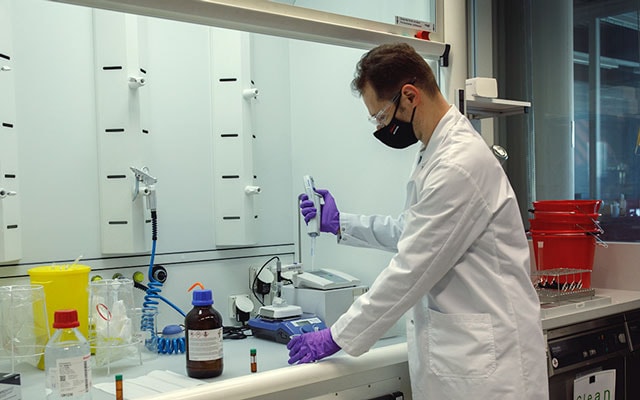To combat the world’s most pressing challenges and drive meaningful change, international collaboration and financial investment will always be critical.
But there is one key ingredient that is routinely missing from the mix: People-centered policymaking.
In a society inundated with technological breakthroughs, the truth is that the potential they present to deliver sustained progress can only be fully realized if they are designed, regulated, and rolled out in a way that best serves the people who will primarily benefit from them.
Take, for example, decarbonization and the European Union’s plan to stop the production of car combustion engines by 2035.
Undoubtedly, it makes for a compelling headline and is, of course, an admirable environmental goal, but the transition of every driver to electric vehicles will only happen if these innovations transcend socioeconomic boundaries and are accessible and affordable for all—not just the privileged and wealthy few.
Gregoire Verdeaux, Senior Vice President, External Affairs, Philip Morris International
Access, awareness, availability, and affordability
So, how do we maximize the opportunities presented by innovations?
Simply, a people-centric mindset is paramount—one revolving around policies that enable widespread adoption of new products.
This means addressing four vital components: Access, awareness, availability, and affordability. However, all four elements are rarely addressed adequately.
Taking awareness as an example, the nine out of 10 adults that don’t quit in any given year—despite the best efforts of public health agencies—deserve to know about better alternatives to continued smoking.
Preventing us from talking about these products—as happened recently—and the impact they have already had in countries that have adopted them, leaves adult smokers who don’t quit with no option other than to continue smoking, the most dangerous form of nicotine consumption.
Potential for a 10X reduction in smoking-related deaths
There is a huge public interest in consigning cigarettes to the display cabinets of museums. And encouraging adults who don’t quit to switch to better alternatives to smoking could significantly bring forward this day. The impact of this intervention would be enormous.
Based on WHO data, estimates, and methods, along with other third-party research, we’ve developed a hypothetical model showing that if smoke-free products are assumed to be 80 percent less risky than cigarettes—and if adults who currently smoke were to switch to them completely—then over their lifetime there’s a potential for a 10X reduction in smoking-attributable deaths compared with historical tobacco control measures alone.
Public calling for greater government action
The enormous potential impact of adopting smoke-free products is mirrored by the significant public support for the role they could play in society.
A new international survey conducted by independent research firm Povaddo for PMI* suggests a growing consensus amongst the public that it’s time for policymakers to embrace harm reduction and alternative tobacco delivery technologies as a key component of global tobacco control.
The cost of inaction—or even slow, incremental action—is unthinkable, and 82 percent agree they would be somewhat or very angry, frustrated, or upset to learn that a breakthrough that could help address a societal issue was not made available to the public due to government inaction.
Of the global respondents, 91 percent also want public health decisions to be based on science and facts, while the majority consider that their government is too slow in embracing technological breakthroughs—with 74 percent believing this has negative consequences for public health.
And more than half (56 percent) believe their government needs to consider the role better alternatives—such as e-cigarettes, heated tobacco products, nicotine pouches, and snus—can play in eradicating cigarette use in their country.
Fairer policies for fairer outcomes
Clearly, it’s time for governments to hear and heed the public’s voice. By putting people first and considering only the science and facts behind better alternatives to smoking, decision-makers could pave an easier path for adults to switch to these products.
Of course, the best choice any smoker can make is to quit products containing nicotine completely—but, in any given year, nine of out 10 don’t, meaning current cessation strategies are not working quickly or effectively enough.
This is the vast population of people powering our onward journey. To date, we’ve invested more than USD 10.5bn developing a range of products that can enable them to abandon cigarettes for good.
However, there’s only so much we can do. To achieve a consumption shift of this magnitude requires policies that encourage the adoption of innovative products, accurate information coupled with appropriate safety standards to give consumers confidence, and regulatory safeguards to protect the public interest.
In our case, that means ensuring smoke-free products reach only the intended audience—adult smokers that don’t quit—and do not fall into the hands of minors or adults who don’t already consume nicotine.
When regulatory policies are designed with consumers at their center, they can provide the catalyst for better, fairer, and more impactful outcomes.
In stark contrast, when inaction prevails—or worse, a prohibitionist approach is favored—progress is blocked, to the significant detriment of the very people who stand to benefit.
For the sake of over one billion smokers worldwide, we’re not prepared to stay silent and allow this to happen. And neither, it seems, is the public.
* Survey Methodology
Povaddo conducted the online survey on behalf of PMI between March 30 and April 20, 2023. The survey was fielded among 30,591 general population adults aged 21 or older in 15 countries: Argentina, Austria, Brazil, Colombia, Dominican Republic, Malaysia, Mexico, Pakistan, Philippines, Serbia, South Africa, South Korea, Tunisia, United Kingdom, and United States. Approximately 2,000 interviews were collected in each country. Data have been weighted by age, gender, and nicotine product use per market to match national statistics. Results are accurate to a margin of error of +/- 1 percent.








